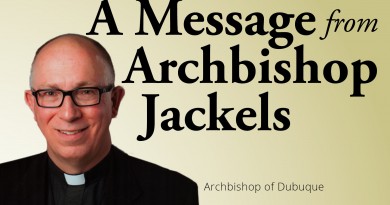The Incarnation Hymn
December 25, 2018
THE NATIVITY OF THE LORD – CHRISTMAS – MASS DURING THE DAY
Is 52;7-10
Beautiful feet upon the mountains
Ps 98:1-6
All the ends of the earth have seen …
Heb 1:1-6
God has spoken to us through his Son
Jn 1:1-18
The Incarnation Hymn
http://www.usccb.org/bible/readings/ 122518-day.cfm
[ms-protect-content id=”1339,323,1059,1325,324,257,322,6459″]
 When we come to Christmas Day, the Gospel is not a Christmas story like those we have been hearing recently. Instead, it is a hymn, and its topic is Incarnation, the meaning behind Christmas. Some of us still remember when these 18 verses that begin John’s gospel were recited at the end of every Mass. We called it the Last Gospel. But now we hear it more rarely, and it deserves some attention.
When we come to Christmas Day, the Gospel is not a Christmas story like those we have been hearing recently. Instead, it is a hymn, and its topic is Incarnation, the meaning behind Christmas. Some of us still remember when these 18 verses that begin John’s gospel were recited at the end of every Mass. We called it the Last Gospel. But now we hear it more rarely, and it deserves some attention.
In your Bible, this passage may alternate between verse and prose. The idea is that a more original poem was adjusted to serve as the introduction to the gospel. The original hymn is the poetic part. The adjustments in prose concern John the Baptist, with whom the story of Jesus begins. It reads like a hymn with interpretive interruptions.
The passage begins with words that evoke the book of Genesis — “In the beginning.” Because John is taking us back to the beginning. It is worth comparing John’s intention with other New Testament writers. The earliest writer, Paul, speaks of Jesus as Son of God in power at the Resurrection (Rom 1:4). Mark, writing later, begins his gospel with the baptism of Jesus, where he is identified as God’s son. Matthew and Luke, writing even later, and basing their Gospels on that of Mark, have added Christmas stories, such as those we have been hearing in these days. John, the last of these to write, moves his moment of sonship back to the very beginning of creation.
But there is more. What each of these other writers have in common is that their imaginations begin with the earthly Jesus and moves from there to the divine Son. In John it is different. Instead of moving from earth to heaven, he begins with heaven and moves to earth. “The Word became flesh and dwelt among us” (John 1:12).
“Incarnation” literally means “become flesh.” It is this movement in John’s Gospel from the divine to the human that is the movement of incarnation. And the incarnational imagination is able to see God working through the son, and in a larger way, as the sacramental imagination, see God working through human beings, human actions. And in reading Scripture, it allows us to see the human dimension in the writing of it and our reading of it. Human persons and human communities are involved at each end of this exchange.
Here is another thing. I suspect we often think of the phrase, “the Word became flesh and dwelt among us,” as something that happens in the first chapter and that is it. Now we will hear the story of the Word-made-flesh. But instead, we might think of the entire Gospel story as a story of the Word becoming flesh. We can see it unfold.
For instance, the phrase “dwelt among us” has an unusual verb — “tented,” as in “tented among us.” If you were a Jewish Christian of the time, you thought of the Tabernacle, the holy tent of the Hebrews. The Word “tabernacled” among us. We see hints of this. Immediately Jesus “occupies” holy places, tabernacles — the Temple (John 2), and Jacob’s well (“neither here nor Jerusalem, 4:21). And then, sacred times — the Sabbath (John 5), Passover (John 6), and especially tabernacles in John 7-10.
We might compare the famous “kenosis” hymn of Philippians, which affirms that Christ Jesus “humbled himself, becoming obedient to death, even death on a cross” (Phil 2:8). We might think of the Gospel of John as a similar journey of the Word, becoming flesh fully when reaching the price of mortality, death itself. But as in the hymn the story continues into Easter, and glory.
For reflection: The incarnational imagination seems to be particularly Catholic.
Father Beck is professor emeritus of religious studies at Loras College, Dubuque.
[/ms-protect-content]
[ms-membership-login]




